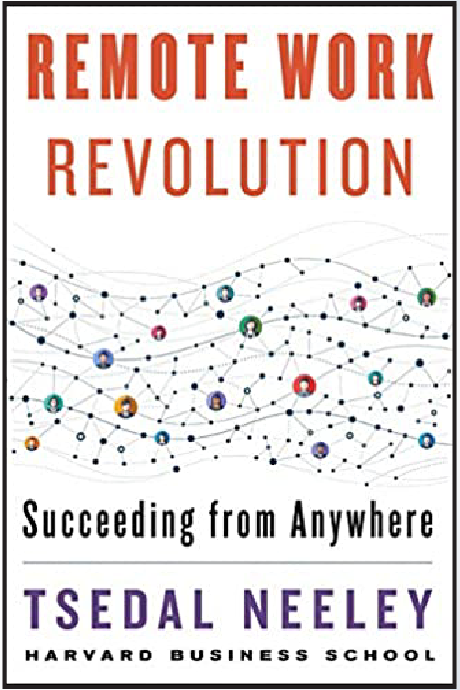Key Takeaways
- The work world has changed significantly over the recent past, with more and more people working remotely.
- There are both challenges and benefits to working remotely, and it’s important to consider them to ensure its success.
- Tsedal Neeley’s book Remote Work Revolution addresses this topic and provides insight on how best to succeed at working remotely.
By now, the world recognizes that the way many people work has changed, with so many people working remotely these days. Tsedal Neeley is a Harvard Business School scholar whose book, Remote Work Revolution, came out in April 2021. Dr. Neeley is an expert on work, technology, and organizations, all areas that have undergone tremendous changes over the past year.

Her book provides five key insights into remote working. We’ll review them here, but you may want to pick up a copy of the book because the information she provides is excellent.
First, Dr. Neeley points out that autonomy drives productivity. When you work remotely, you get to control two things: your space and your time. You get to work when and where you want to. Studies are showing that productivity is increasing as a result. Whereas the prevalent thought about remote working might have been that people would “goof off” and productivity would decrease, what we’re finding is that it’s quite the opposite.

Number two is that trust is not one-size-fits-all. There are two types of trust: cognitive and emotional. The cognitive version is quick – you can get a team together, explain their duties, and have them up and running pretty quickly. The emotional version of trust is a bit different because it has to do with care and concern – it’s a mindset. It has to do with getting into the depths of an organization. You can have both types of trust taking place at different levels within an organization, and it’s something that both leaders and workers need to consider when working remotely.
Number three is don’t choose digital tools randomly. You’ll want to select the right tools, but in particular, you’ll want to consider the tools around two concepts: conveyance and convergence. Conveyance is about transmitting information, whereas convergence is a bit different. Convergence is about discussing and interpreting. Select the tools that help your employees best share information as well as successfully meet to discuss and interpret information.
Number four, we need mature self-disclosure in remote work. Let people know what you’re doing, otherwise they may assume you’re not working. Communicate what you’re working on and let your team know if you’re planning to step away to go to an appointment or run an errand.

Number five is that leaders must motivate while being invisible. This is a tough thing to do, but it starts with having a very clear vision. Provide employees with a very short vision statement that everyone can understand and rally around. Employees also need a high level of predictability when it comes to knowing that the work they do will produce the desired result. By providing them with clarity around goals, everyone will know they’re working on the right things.
The world has changed, along with the way many of us work. Understanding these key insights will help make that change smoother if you find yourself working remotely. Until next time, enjoy.
Gary
If you’d like to read more on this topic, here is one of Gary’s previous posts that you might enjoy:
